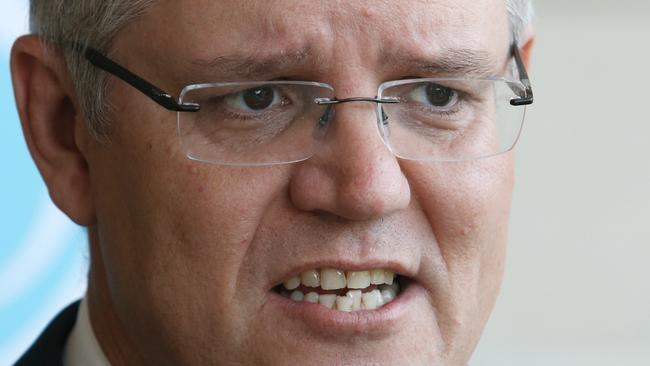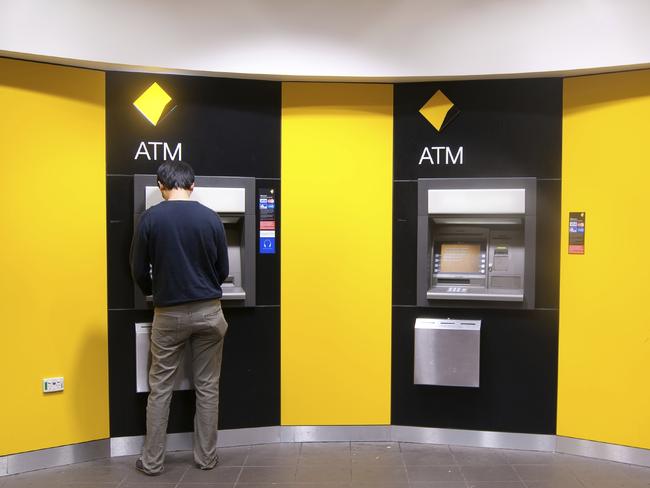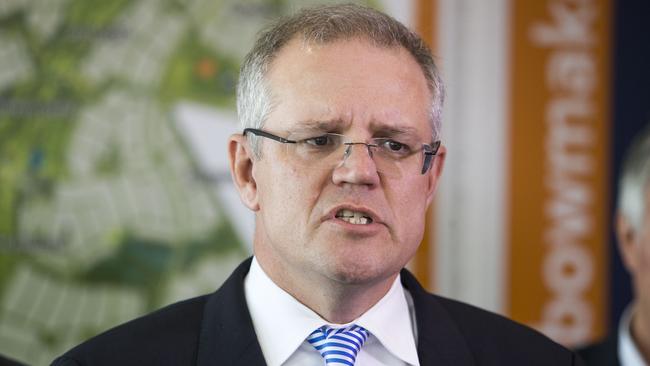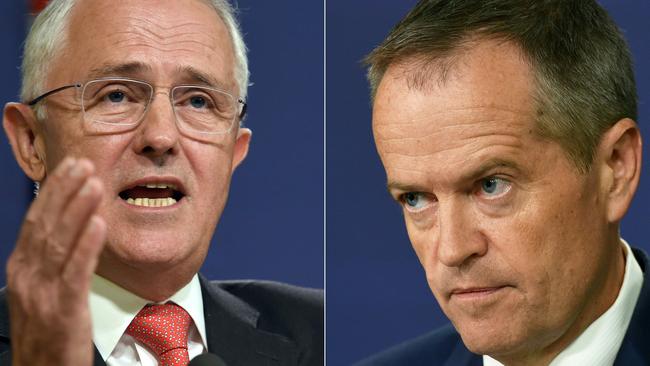Turnbull Government expected to crack down on superannuation
FINALLY some details are emerging about what the Turnbull Government plans to do, and some key groups are in the firing line.

Budget 2016
Don't miss out on the headlines from Budget 2016. Followed categories will be added to My News.
- Turnbull Government expected to crack down on super tax concessions
- Treasurer has announced banks will pay $121m to improve ASIC
FINALLY some details are emerging about what the Turnbull Government plans to do, and some key groups are in the firing line.
Treasurer Scott Morrison announced this morning that banks would be forced to pay an extra $121 million to increase the resources of the Australian Securities and Investment Commission.
This will include $61 million for enhanced data analytics and surveillance capabilities.
“In the 21st century economy, you need a tech cop on the beat,” Mr Morrison told reporters.
But Opposition Leader Bill Shorten slammed the government decision as an attempt to avoid a royal commission into the sector, labelling it “hush money”.
The government “has sold out Australians in favour of the big banks”, he told reporters in Sydney.
It comes as reports suggested the Turnbull Government is also ready to outdo Labor and crack down harder on high-income superannuation tax concessions.
Here’s what’s happening:
CRACKDOWN ON HIGH EARNERS
Superannuation has been a hot topic of debate with experts suggesting that loopholes in the system cost the Federal Budget about $30 billion a year in lost revenue.
Richard Denniss, from progressive think tank the Australia Institute, told news.com.au last year that the key issue was that rich people got lucrative tax concessions that were not offered to low-income earners.
“There’s a very clear problem at the moment: tax concessions go disproportionately to rich the wealthy. We could fix that and save the Budget a lot of money,” Mr Denniss said.
Normally high-income earners pay 45 per cent tax on every dollar they earn above 180,000.
But if they put money into their super fund, it only gets taxed at 15 per cent unless they earn more than $300,000. Those on more than $300,000 pay 30 per cent.
Labor has already promised to cut the income threshold for more heavily taxing contributions from $300,000 to $250,000.
The Coalition now plans to up the ante, cutting the threshold to $180,000, Fairfax reports.
The government plans to raise four times as much as the opposition’s policy.
It says the change, to be unveiled on Budget night, will increase the tax on super contributions of an extra 244,000 Australians and will net $2 billion a year, compared with Labor’s $500 million a year.
One of the criticisms of the Abbott Government’s controversial first Budget was that the measures, including a $7 GP fee, cutbacks to family benefits and changes to unemployment benefits, impacted low income families the most.
A crackdown on super tax concessions was one of measures that experts noted could raise money and be fairer than measures like the GP fee. Others included eligibility for the aged pension and negative gearing.
BANKS TO PAY UP
Treasurer Scott Morrison has announced this morning that banks will pay an additional $121 million to increase the resources of the Australian Securities and Investment Commission.
This will include $61 million for enhanced data analytics and surveillance capabilities.
“In the 21st century economy, you need a tech cop on the beat,” he said.
ASIC will also get $57 million for increased surveillance, investigation and prosecution capacity to pursue cases.
ASIC boss Greg Medcraft’s term has been extended for 18 months and the government has also appointed an additional commissioner to ASIC with special expertise in prosecution.
“We want an ASIC that leans forward and we want an ASIC that actually prosecutes and takes those matters up,” Mr Morrison said.
When asked whether the costs would just be passed on to bank customers, Mr Morrison said he thought the levy would be “easily digestible”.
“I would be furious if I thought this was being sought to be passed on to the banks,” he said.
The Federal Government has been under pressure to announce a Royal Commission into the finance and banking sector to address scandals that have seen Australians lose thousands.
The Financial Services Council has backed the government’s package, after being “very opposed” to Labor’s royal commission plan.
Despite polls showing six out of 10 voters backed Labor’s call for a royal commission, Finance Minister Matthias Cormann insisted people wanted action and not another inquiry that would not reveal anything new.

“They want us to take action and ASIC of course does have all of the investigative powers over a royal commission,” he told ABC TV.
On top of that it had the power to prosecute offenders.
Opposition Leader Bill Shorten accused the government of holding “secret” talks with the banks to nut out a plan to avoid a royal commission.
In an opinion piece penned for The Daily Telegraph he said the misdeeds of the banks included forged signatures, tampered documents, sham contracts and fake witnesses.
“Tens of thousands of Australians have been ripped off by our financial institutions — enough is enough,” he wrote.
Mr Shorten said the coalition had reduced funding to ASIC by $120 million, but acknowledged Labor had done the same while it was in government.
And while he agreed the regulator needed to be properly funded, the leader believes “nothing less” than a royal commission into the banking sector is needed.
Originally published as Turnbull Government expected to crack down on superannuation


